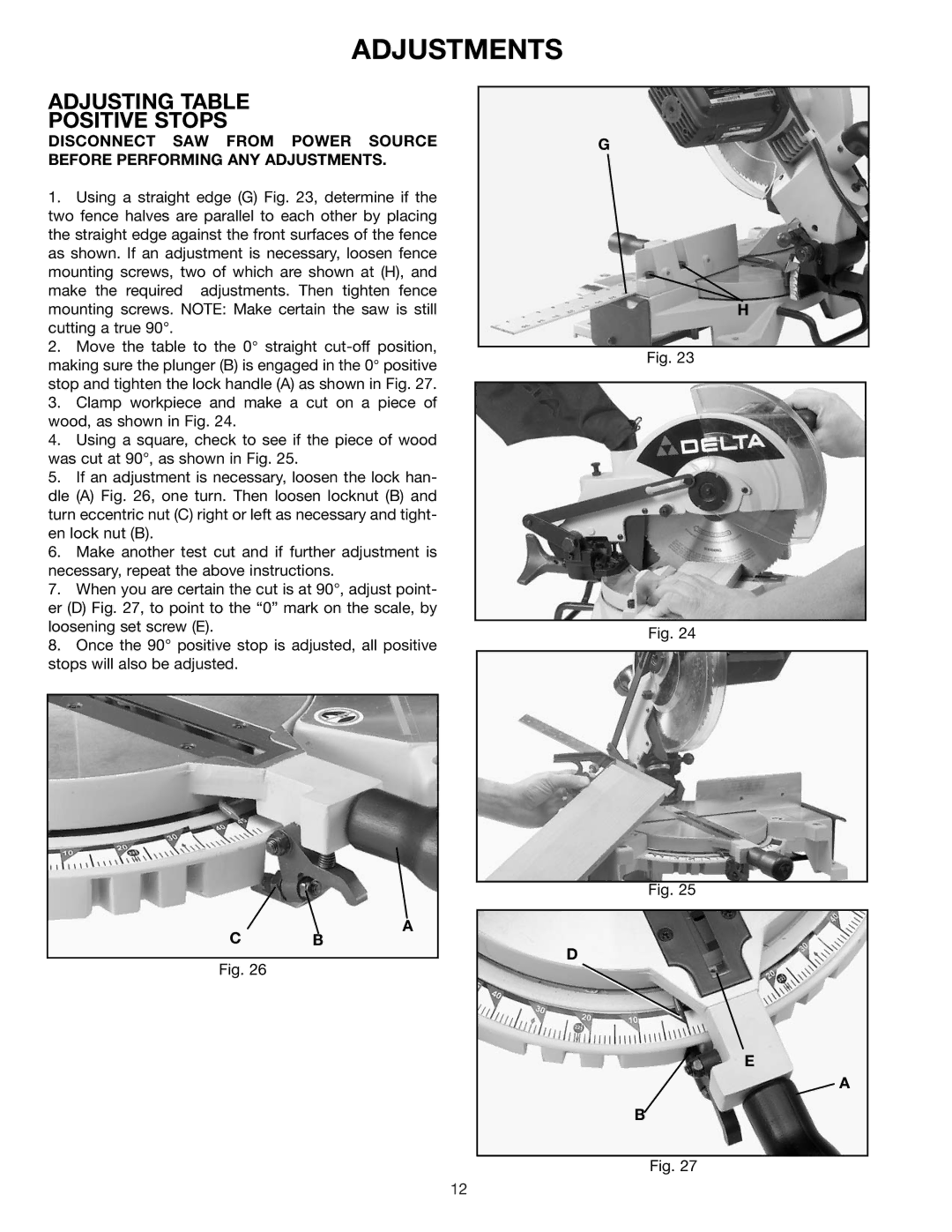
ADJUSTMENTS
ADJUSTING TABLE
POSITIVE STOPS
DISCONNECT SAW FROM POWER SOURCE BEFORE PERFORMING ANY ADJUSTMENTS.
1.Using a straight edge (G) Fig. 23, determine if the two fence halves are parallel to each other by placing the straight edge against the front surfaces of the fence as shown. If an adjustment is necessary, loosen fence mounting screws, two of which are shown at (H), and make the required adjustments. Then tighten fence mounting screws. NOTE: Make certain the saw is still cutting a true 90°.
2.Move the table to the 0° straight
3.Clamp workpiece and make a cut on a piece of wood, as shown in Fig. 24.
4.Using a square, check to see if the piece of wood was cut at 90°, as shown in Fig. 25.
5.If an adjustment is necessary, loosen the lock han- dle (A) Fig. 26, one turn. Then loosen locknut (B) and turn eccentric nut (C) right or left as necessary and tight- en lock nut (B).
6.Make another test cut and if further adjustment is necessary, repeat the above instructions.
7.When you are certain the cut is at 90°, adjust point- er (D) Fig. 27, to point to the “0” mark on the scale, by loosening set screw (E).
8.Once the 90° positive stop is adjusted, all positive stops will also be adjusted.
A
C B
Fig. 26
G
H
Fig. 23
Fig. 24
Fig. 25
D
E
A
B
Fig. 27
12
